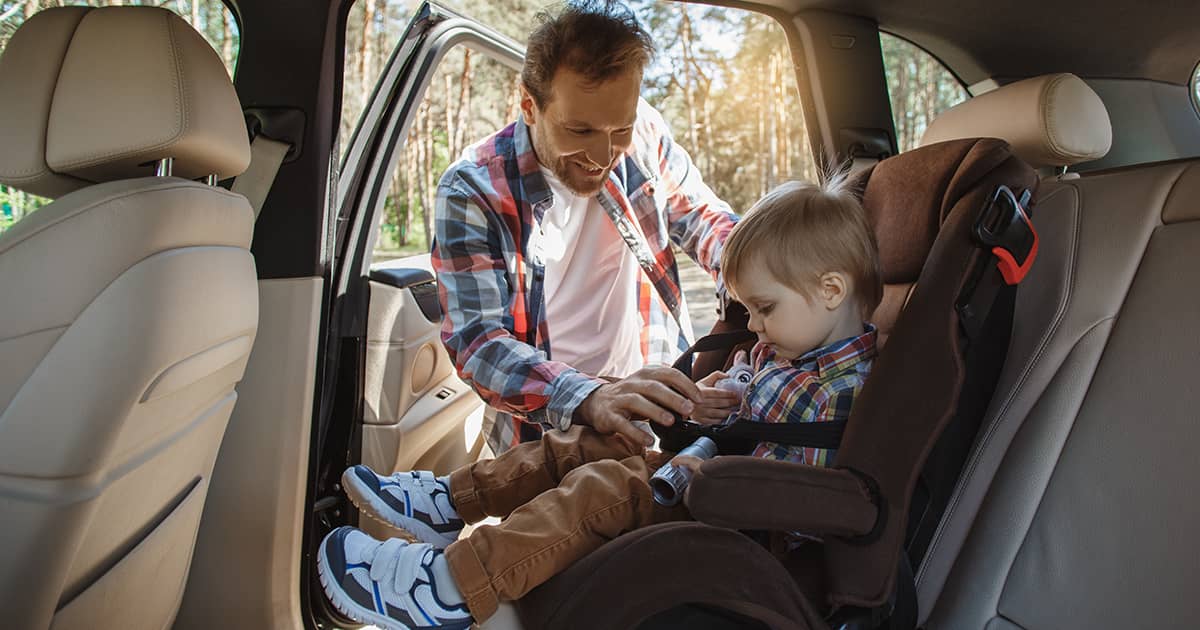Top Tips for a Safe Road Trip

Road trips can be one of the best parts of summer! Here are some tips for a safe road trip.
1. Give your car a tune-up
Make sure your car is in good working order before you leave. The last thing you need is the stress and danger of being stranded in the summer heat.
- Check the fluid levels.
- Make sure all of the lights are working.
- Check the condition and pressure of the tires.
- Check for leaks and strange noises.
- Make sure the brakes are working properly.
- Change the oil if needed.
- Take your car to the shop for a road trip package if you are unsure of how to do all of the maintenance yourself.
2. Avoid distractions
Not driving distracted is one of the most important road trip tips. Distracted driving is one of the biggest risks you can take when you are on the road. Do not try to multitask. Devote all of your focus to driving instead.
- If you are going on a road trip, chances are that you will not be travelling alone; have some ground rifles to avoid distractions. Have others in the car avoid distracting activities like shouting or jostling and pull over if you need to.
- Ask for help with multitasking. Ask someone to navigate and someone else to be in charge of the music.
3. Drive defensively
Be aware of other drivers on the road and be prepared for potential accidents. If another driver is doing something potentially dangerous, like speeding or trying to cut you off, remove yourself from the situation.
- Keep an eye on other drivers.
- Check your blind spots.
- Avoid people who are driving erratically.
- Avoid conflicts with other drivers.
4. Do not drive when tired
Fatigue is just as dangerous as impaired driving and can be a risk with long road trips.
- Get lots of sleep the night before you leave.
- Take turns driving if another driver travelling with you.
- Take lots of coffee breaks and pull over for a nap if you need to.
- Plan your route ahead of time to avoid long stretches of driving.
- Take breaks to refuel, rest, and eat.
- Know where you can stop if you need to
Pull over if:
- Your eyelids are feeling heavy and you are having a hard time keeping your head up.
- Focusing is becoming difficult.
- You find yourself daydreaming.
5. Do not speed
It might sound like common sense, but many drivers ignore the speed limit, thinking that they are not taking much of a risk getting to their destination a little quicker. But the faster you are driving, the longer it takes to stop or slow down, and you will have less time to react to a dangerous situation.
Be aware of your speed by looking for traffic signs, checking the speedometer, and avoiding distractions. Also, leave earlier than you think you need to, so you are not rushing to reach your destination.
6. Maintain a safe following distance
Always have a cushion of space between you and the car ahead. Follow the three-second rule by leaving enough space between you and the car ahead of you to count to three. This gives you time to avoid hazards. Turn the three-second rule into the four-second rule for large trucks and vehicles with big blind spots. If the weather is bad or driving conditions are unsafe, leave six seconds between you and the vehicle ahead.
7. Be prepared for emergencies
Make sure you have an emergency kit in your car. It should include:
- Water
- Non-perishable food
- Clothes
- Blankets
- First aid kit
- Flashlight
- Emergency phone numbers and a fully charged phone or charger
- Jumper cables
- Tools for changing tires and a spare tire
- High visibility jackets and cones
8. Have roadside assistance
Purchasing a roadside assistance plan before you leave is part of a safe summer road trip. Different types of mishaps can occur while you are on the road, for example, you could run out of gas, get a flat tire, your car can break down, or you could even get lost. Having a roadside assistance plan means that you will not be stranded, and many plans also come with deals on hotels, restaurants, and attractions.
9. Wear sunglasses
Wearing polarized sunglasses while driving reduces glare from other vehicles and the road, which can impair your vision. Sunglasses will also reduce eye fatigue and protect your eyes from UV rays.
10. Check the weather
Check the weather forecast before you leave so you know what to expect along your route. If there is going to be a storm, you may want to consider staying until it passes and checking out local attractions instead of driving. If there is an unexpected storm and you must pull over, turn your hazard lights on.







